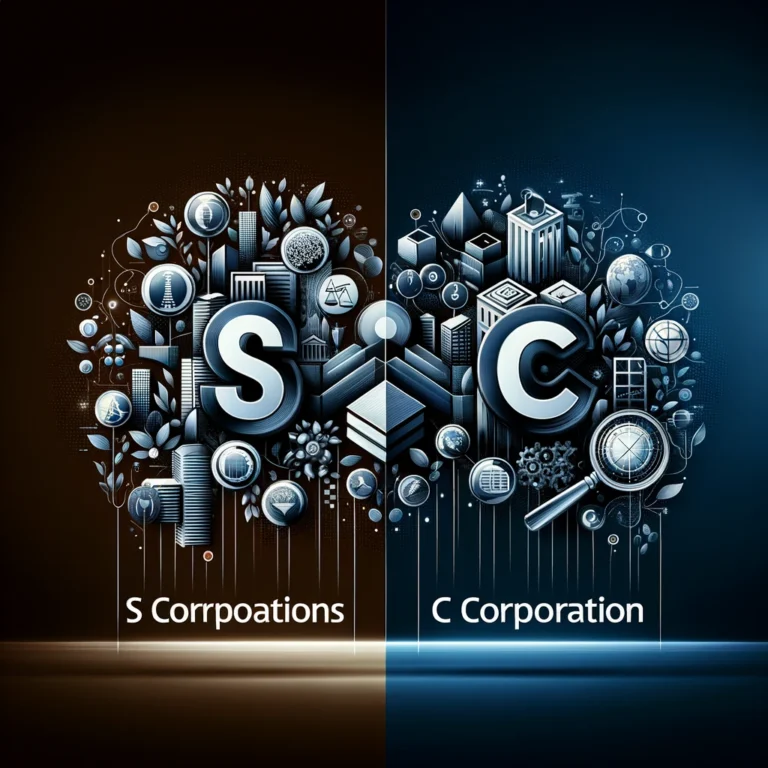What is a Limited Liability Company (LLC) and the Evolution of LLCs in Business History

A Limited Liability Company (LLC) is a popular business structure in the United States that blends the characteristics of a corporation with those of a partnership or sole proprietorship. But what exactly is an LLC, and how did this business entity come into existence? In this article, we will explore the definition of an LLC, its key features, and the historical development of this business structure, providing a comprehensive understanding of its role in the modern business landscape.
1. Definition of a Limited Liability Company (LLC)
What is an LLC?
A Limited Liability Company (LLC) is a business structure that offers its owners, known as members, limited liability protection. This means that the personal assets of the members are generally protected from the business’s debts and legal liabilities. An LLC can have one or multiple members, and these members can be individuals, corporations, or other LLCs. This flexibility makes LLCs an attractive option for a wide range of businesses, from small startups to larger enterprises.
Key Features of an LLC:
- Limited Liability: Members are not personally liable for the debts or legal obligations of the LLC.
- Pass-Through Taxation: By default, an LLC’s profits and losses are passed through to the members’ personal tax returns, avoiding the double taxation that affects C Corporations.
- Flexibility in Management: LLCs can be managed by the members themselves (member-managed) or by appointed managers (manager-managed).
- Fewer Formalities: Compared to corporations, LLCs have fewer requirements for meetings, record-keeping, and other formalities.
2. History of Limited Liability Companies
Early Origins:
The concept of limited liability has its roots in ancient Roman law, where certain business entities allowed investors to limit their financial risk to the amount of their investment. However, the modern LLC as we know it today has a more recent history, with its origins in the 20th century.
The Birth of the LLC in the United States:
The first modern LLC was established in the United States in the state of Wyoming in 1977. Wyoming pioneered the LLC as a way to combine the limited liability protection of a corporation with the tax advantages and operational flexibility of a partnership. The motivation behind this innovation was to provide a more suitable business structure for the state’s oil and gas industry, where partnerships were common but offered little protection against liability.
Spread Across the United States:
Following Wyoming’s success, other states began to adopt LLC legislation. Florida was the next state to pass an LLC statute in 1982, and by the early 1990s, the concept had gained significant traction across the country. The Internal Revenue Service (IRS) played a crucial role in this expansion by issuing a ruling in 1988 that allowed LLCs to be taxed as partnerships, further enhancing their appeal.
The Rise in Popularity:
Throughout the 1990s and into the 2000s, LLCs became increasingly popular as more states enacted legislation to accommodate this business structure. The flexibility, liability protection, and favorable tax treatment offered by LLCs made them the go-to choice for many entrepreneurs and small business owners. Today, LLCs are one of the most common business entities in the United States, used in a wide range of industries.
International Influence and Adaptation:
The LLC model has also influenced business law internationally. Countries such as Germany (GmbH), the United Kingdom (LLP), and various others have adopted similar structures that provide limited liability and flexibility. These international versions of LLCs cater to the specific legal and business environments of their respective countries.
3. Advantages and Disadvantages of an LLC
Advantages:
- Limited Liability Protection: Shields members’ personal assets from business liabilities.
- Pass-Through Taxation: Avoids double taxation by passing profits and losses directly to members’ personal tax returns.
- Flexibility: Offers a flexible management structure and fewer formalities compared to corporations.
- Attractive to Investors: The limited liability and flexible structure make LLCs attractive to investors and partners.
Disadvantages:
- Self-Employment Taxes: Members may be subject to self-employment taxes on their share of the profits.
- Complexity in Multi-State Operations: Operating an LLC in multiple states can require additional filings and fees.
- Limited Legal Precedent: As a relatively recent business structure, there may be less legal precedent and case law governing LLCs compared to corporations.
Conclusion
The Limited Liability Company (LLC) represents a significant evolution in business law, offering a unique blend of liability protection, tax advantages, and operational flexibility. From its origins in Wyoming in 1977 to its widespread adoption across the United States and beyond, the LLC has become a cornerstone of modern business structures. Whether you’re starting a small business or looking to restructure an existing one, understanding the benefits and history of LLCs can help you make informed decisions that align with your business goals.
Here is the featured image for this article.






